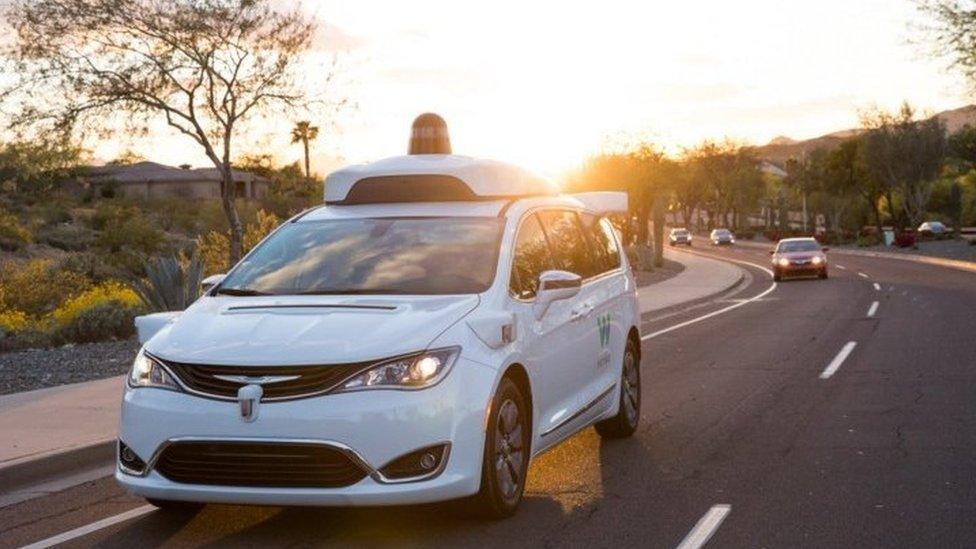Google spin-off Waymo to sell Lidar it fought Uber on
- Published

Lidar is seen as crucial to the success of self-drive cars
Google spin-off Waymo plans to sell the sensors it uses on its self-drive cars to other industries.
The technology behind them was at the heart of legal action last year, with Google accusing taxi app company Uber of stealing trade secrets.
In a blogpost, Waymo said it was targeting its Lidar (light detection and ranging) units at industries including robotics, security and agriculture not other self-drive cars.
It did not say how much it would cost.
Laser light
Lidar technology is seen by many as crucial to the success of autonomous vehicles.
The sensors measure distance via pulses of laser light and generate 3D maps of the world around them.
Head of Waymo's Lidar team Simon Verghese said that his company, which has been developing the technology since 2011, had three different types of Lidar systems.
Initially, it will offer one Lidar unit - dubbed Laser Bear Honeycomb - to select partners.
The sensor is used around the bumper of Waymo's self-driving vehicles and has a wide field of view.
"Offering this Lidar to partners helps spur the growth of applications outside of self-driving cars and also propels our business forward," Mr Verghese said.
"We can scale our autonomous technology faster, making each sensor more affordable through economies of scale."
Waymo and Uber battled very publicly over the technology last year, with Uber accused of stealing and using trade secrets related to Lidar.
The companies reached a settlement that saw Uber giving Waymo a 0.34% stake in its company, worth approximately $245m (ВЈ186m).
Uber agreed not to use the technology in its self-driving cars but also maintained it had never done so.
- Published9 February 2018